Kitchen Fire Safety: kitchens are undoubtedly the heart of any home, it's not just the place where we cook, it's also where we spend quality time with our family and loved ones. However, with so many cooking appliances and equipment, it's also the most common place in your home where a fire can start.
According to the National Fire Protection Association (NFPA), cooking fires account for 49% of all home fires, which means that we all need to take the necessary precautions to avoid a devastating kitchen fire. In this blog post, we'll discuss some essential tips and measures that you can take to prevent a fire in your kitchen.
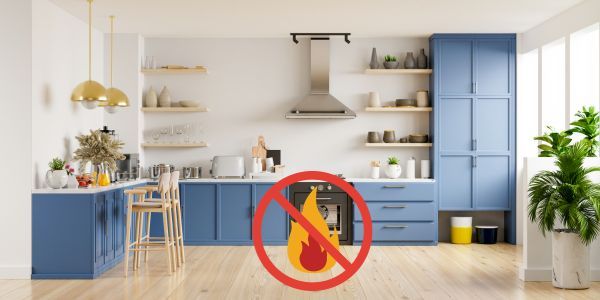
Keep Your Kitchen Clean and Tidy
One of the most common causes of kitchen fires is the buildup of grease and oil on the stove and other cooking surfaces. Grease fires can quickly get out of control, so make sure that you keep your kitchen clean and tidy.
Wipe your stove and cooking surfaces after each use to avoid residual grease build-up. Clean your oven and other kitchen appliances regularly following the manufacturer's instructions.
Also, don't forget to remove any flammable materials such as paper towels, cooking oils or plastic bags from the stovetop area.
Never Leave Your Cooking Unattended
Another leading cause of kitchen fires is leaving your cooking unattended. Whether you're frying, broiling, or grilling food, don't leave it unattended, even for a minute.
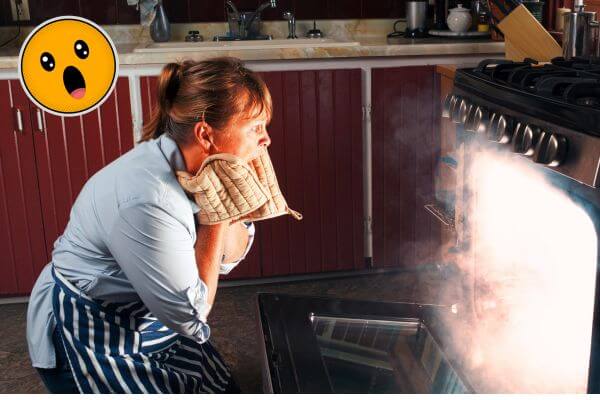
If you have to step away from the kitchen, remember to either turn off the stove or set a timer as a reminder to return.
Use Cooking Equipment Safely
Cooking equipment such as stoves, ovens, air fryers, and microwaves are essential in the kitchen, but they can also be a potential fire hazard.
The best way to put out a small kitchen fire is to smother it with a lid, so make sure you have one handy while cooking.
First and foremost, always keep flammable materials away from the stove, oven, or any other heating element. Also, make sure that your cooking equipment is in good working condition.
Check for any damages or issues that could cause a fire, such as frayed or damaged cords on kitchen appliances, and replace or repair them immediately.
Be Prepared in Case of a Fire Emergency

No matter how much you try to prevent it, a fire can still happen, so it's essential to be prepared for it. Make sure you have a fire extinguisher in a visible and easy-to-reach location.
Also, have a smoke detector installed in your kitchen and throughout your home to alert you in case of a fire. Educate everyone in your household about fire safety procedures, including how to use a fire extinguisher and how to shut off gas and electricity in case of an emergency.
Call The Fire Department
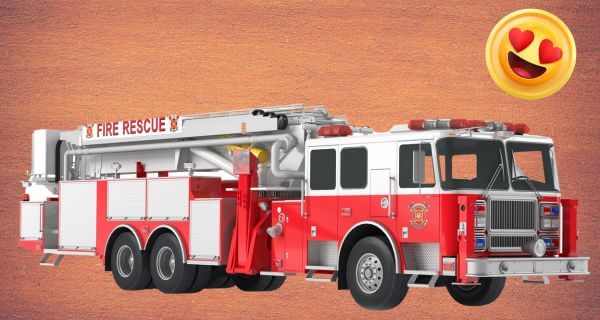
In case of a fire emergency, always call the fire department immediately. Don't attempt to put out a fire yourself unless it's a small and contained fire that you're confident you can handle. If a fire is spreading, evacuate your home immediately and call 911 from a safe location.
Safety Equipment to Consider
The best fire protection for the kitchen involves a combination of preventive measures listed above and safety equipment to ensure both the prevention of fires and the ability to respond effectively if a fire does occur. Here are some key components of effective fire protection for the kitchen:
Smoke Detectors:
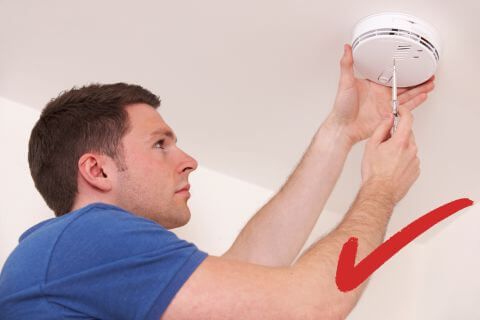
Install smoke detectors in or near your kitchen. These devices can quickly detect smoke and alert you to the presence of a fire. Make sure to test them regularly and replace batteries as needed.
Fire Extinguishers:
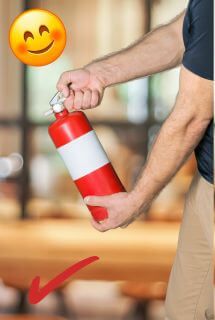
A kitchen fire extinguisher is a crucial piece of safety equipment. Choose one rated for kitchen use, such as a Class K extinguisher, which is designed to handle grease fires. Learn how to use it properly, and keep it within easy reach, preferably near the exit. See our review of the best kitchen fire extinguishers on Amazon.
Fire Blankets:
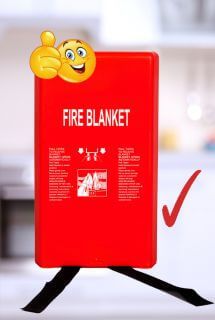
Fire blankets are particularly useful for smothering small kitchen fires. They can be placed over the flames to starve the fire of oxygen. Keep a fire blanket in an accessible location, and make sure you know how to use it.
Stove and Oven Safety:
If you have a gas stove, ensure that it has a flame failure device, which cuts off the gas supply if the flame goes out. For electric stoves, keep the area around the burners clean to prevent food or grease buildup. Use back burners when possible and turn pot handles inward to prevent accidental spills.
Regular Appliance Maintenance:
Maintain your kitchen appliances, such as stoves, ovens, air fryers, and microwaves, according to the manufacturer's recommendations. Regularly check for any damage or wear that could lead to a fire hazard. Replace faulty components promptly.
Safe Cooking Practices:
Practice safe cooking habits, including never leaving the kitchen unattended while cooking as mentioned above, using a timer as a reminder, and keeping flammable materials away from the stove. Be cautious when frying, as hot oil can easily ignite.
Cleanliness:
Again, stressing this importance - regularly clean your kitchen, especially areas prone to grease buildup, like the stovetop and range hood. Clean appliances, including ovens and microwaves, to remove food residues and potential fire hazards.
Children and Pets:
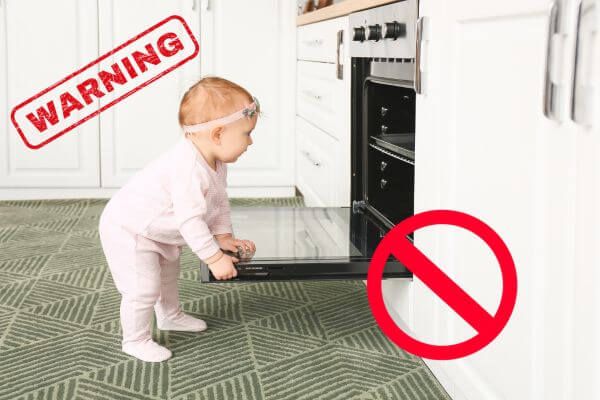
Keep children and pets away from the stove and other hot cooking surfaces. Consider using safety gates to prevent access to the kitchen when cooking.
Emergency Contacts:
Have emergency contact numbers, including 911, readily available in your kitchen. In case of a fire, every second counts, and quick access to these numbers can make a crucial difference.
Fire Safety Education:
Educate everyone in your household about fire safety, including what to do in case of a kitchen fire. Teach them how to use a fire extinguisher and how to safely evacuate the kitchen and the house if needed.
Escape Plan:
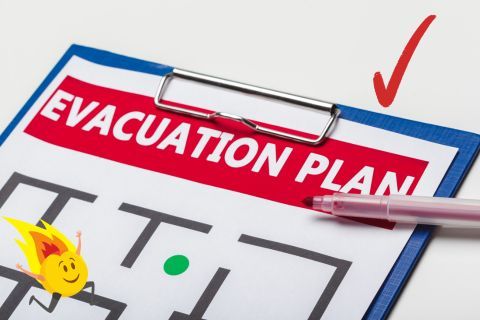
Develop a fire escape plan for your home, and make sure everyone in your household knows the escape routes. Practice fire drills periodically, especially if you have children.
Emergency Shut-off:
Learn how to shut off the gas and electricity supply to your kitchen in case of an emergency. This knowledge can prevent the escalation of certain types of fires.
Fire-Resistant Curtains or Blinds:
Consider using fire-resistant window coverings, such as curtains or blinds, in the kitchen area. These can help prevent fires from spreading to curtains or drapes.
"Catch Fire" Prevention:
Preventing kitchen fires from starting in the first place is always the best-case scenario. Again, make sure your stove and cooktop are clean and free of grease, and all appliances are correctly installed and maintained to reduce fire risk. Avoid leaving flammable items such as pot holders, towels or oven mitts near a hot cooking surface.
Cooking Fire Safety:
When cooking, always wear tight-fitting clothing with short or rolled-up sleeves and avoid wearing loose garments that can catch fire. Keep flammable objects such as potholders, oven mitts, wooden utensils and paper towels away from open flames. Pay attention to your cooking at all times; never leave food unattended.
Remember that fire safety is not just about equipment; it's also about adopting safe practices and being prepared for emergencies. By combining these preventive measures with proper equipment and knowledge, you can significantly reduce the risk of kitchen fires and ensure the safety of your home and loved ones.

The kitchen is undoubtedly the heart of the home, a place where culinary creativity flourishes and cherished moments are shared. However, it is also a place where complacency with fire safety can lead to devastating consequences.
By adhering to these essential tips for kitchen fire safety, you can significantly reduce the risk of a potentially catastrophic fire. Maintaining a clean and tidy kitchen, never leaving your cooking unattended, using cooking equipment safely, being prepared for emergencies, and promptly calling the fire department when necessary are the cornerstones of a safer kitchen environment.
Your vigilance and commitment to these safety measures will not only protect your property but also ensure the well-being of your family and loved ones. As you embark on your culinary adventures, remember: stay safe, and happy cooking!
Thanks for stopping by our bee hive and reading up on kitchen fire safety!
If you want to learn more about fire extinguishers for your home, here are two reviews you'll like to read:
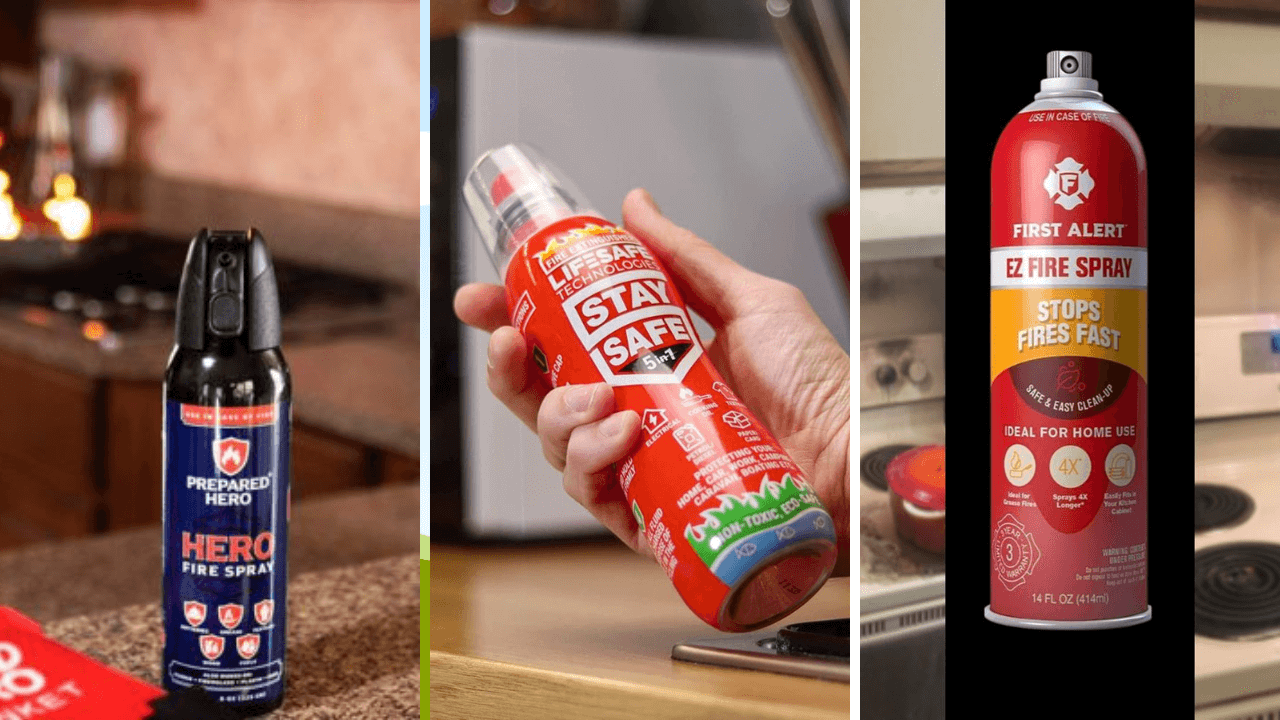
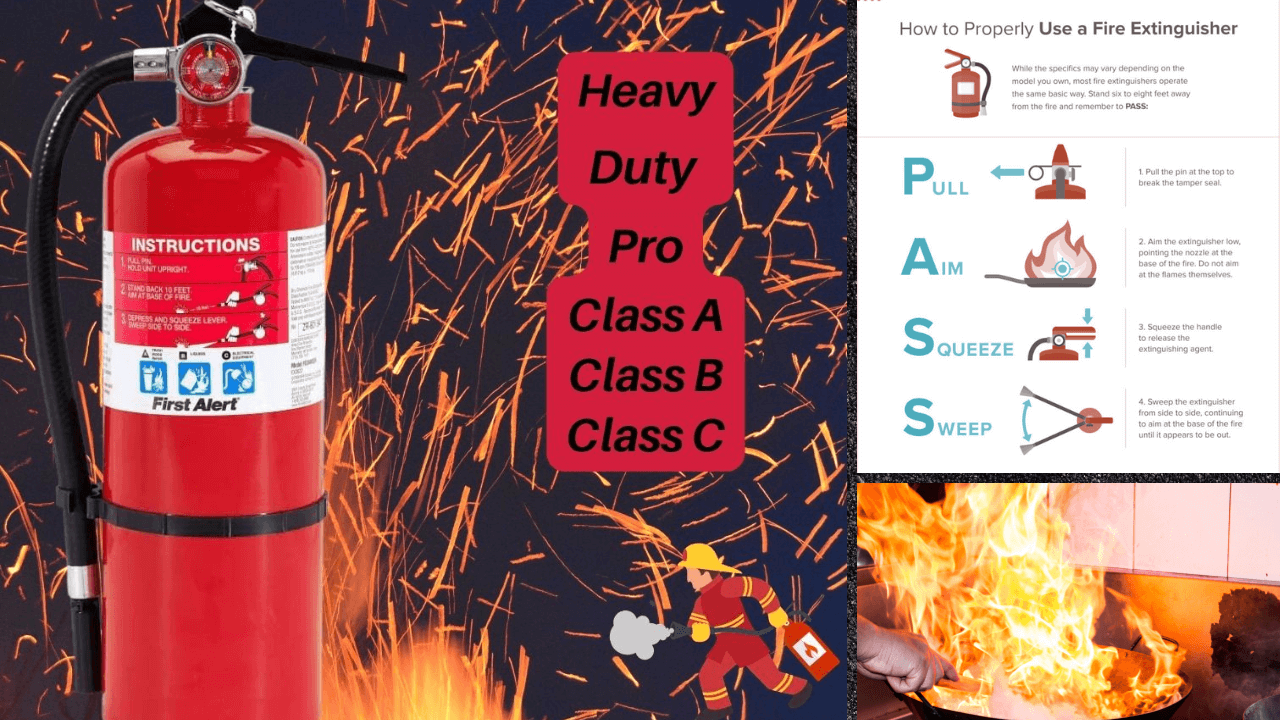

Bertie
Before you leave, if you haven't already done so, please subscribe so you will be the first to see reviews you can rely on.











Member discussion